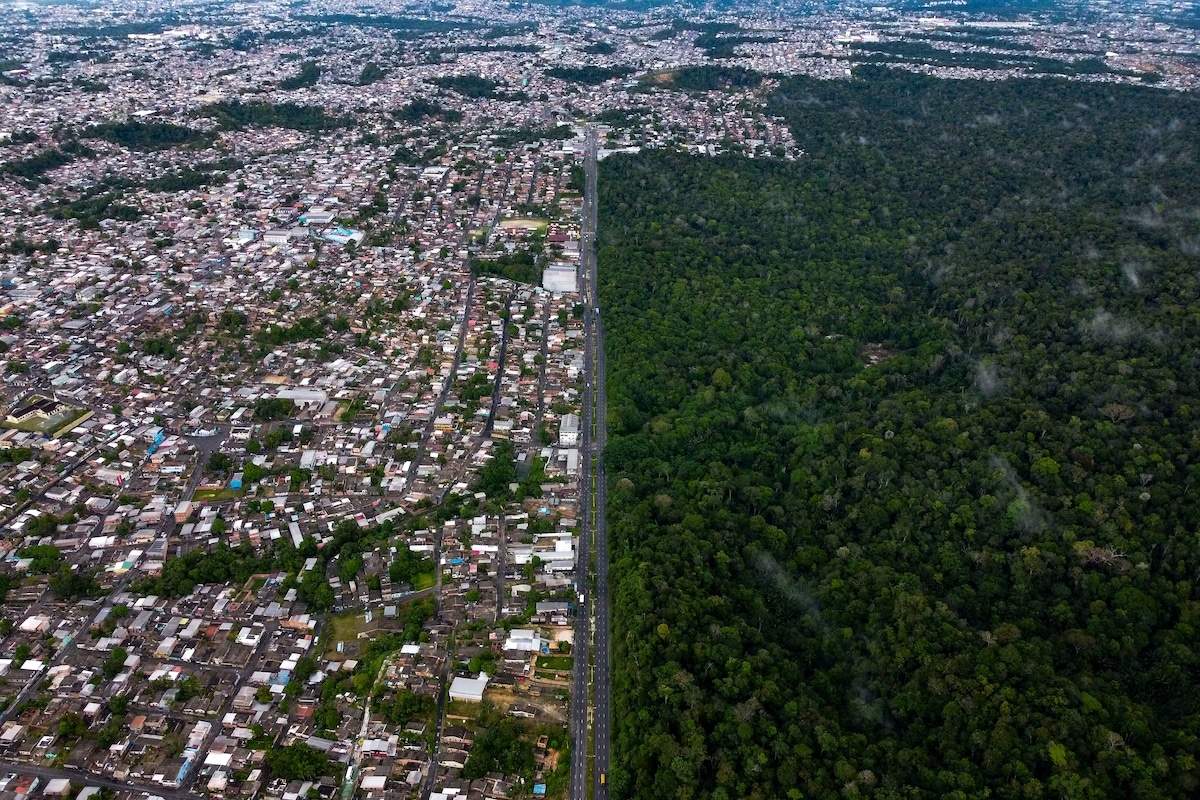Ecological Collapse Could Happen Much Sooner Than Expected, Study Finds

 Why you can trust us
Why you can trust us
Founded in 2005 as an Ohio-based environmental newspaper, EcoWatch is a digital platform dedicated to publishing quality, science-based content on environmental issues, causes, and solutions.
Without a doubt, the landscape of our planet is changing. Arctic sea ice is melting, rainforests are being razed for agriculture, deserts are expanding and meadows are appearing in places that have been covered in snow for thousands of years.
In some parts of the world, tipping points have already been surpassed, and in others, the danger of that happening may come sooner than we might think.
According to The Conversation, more than 20 types of ecosystem have already experienced “regime shifts” and more than 20 percent — including the Amazon rainforest — are on the precipice of it.
A new study by UK scientists shows how these tipping points can augment and advance one another.
“It could happen very soon,” said professor Simon Willcock of Rothamsted Research, who was co-leader of the study, as The Guardian reported. “We could realistically be the last generation to see the Amazon.”
The study, “Earlier collapse of Anthropocene ecosystems driven by multiple faster and noisier drivers,” was published in the journal Nature Sustainability.
Humans are stressing ecosystems in a myriad of ways — from replacing natural habitats with agricultural, residential and commercial development to using toxic pesticides that contaminate soils and waterways that feed into the ocean. When you combine environmental stresses with the extreme weather caused by climate change, the time frame when regime shifts leading to ecological collapse happen could occur 38 to 80.9 percent earlier, the study said.
“Accelerating stress levels, increasing frequencies of extreme events and strengthening intersystem connections suggest that conventional modelling approaches based on incremental changes in a single stress may provide poor estimates of the impact of climate and human activities on ecosystems,” the authors of the study wrote. “Put simply, the choices we make about ecosystems and landscape management can accelerate change unexpectedly.”
Of great concern to the scientists are ecosystems that are already under stress being hit with climate extremes. This could transfer amplified or novel stresses to another ecosystem, creating an “ecological doom-loop,” the scientists wrote in The Conversation.
In order to get an idea of the amount of stress ecosystems are capable of withstanding, the researchers used computer models that simulated how an ecosystem would react to circumstantial changes and how it would work in the future.
They used two models that represented lake water quality and forests and two that represented Easter Island, or Rapa Nui, and India’s Chilika lagoon fishery.
Feedback mechanisms were key to both models, helping to balance and stabilize the ecosystem when stresses weren’t too strong to be absorbed. An example the researchers used was catching adult fish on Lake Chilika when there were plenty, which could be a stable practice.
When stresses are too much to be absorbed by the ecosystem, it suddenly reaches a tipping point and collapses. Again using the example of Lake Chilika, fishers could catch more juvenile fish when stocks weren’t as plentiful, which would make renewal more difficult.
The computer modeling software was used in more than 70,000 scenarios, and, with all four models, stresses along with extreme events moved a predicted tipping point up by 30 to 80 percent.
So an ecosystem collapse that was predicted for the 2090s due to one stress, like rising global temperatures, could happen in the 2030s by adding in factors like pollution, extreme rainfall or an abrupt uptick in the use of natural resources, the scientists wrote.
About 15 percent of the ecosystem collapses happened when the main stress didn’t change, but extreme events or novel stresses were added. That means sustainably managing ecosystems doesn’t guarantee they won’t be susceptible to added events pushing them past the tipping point.
The scientists emphasized that earlier studies had suggested the consequences of exceeding tipping points would start to show themselves beginning around 2050, but the findings of this study suggest it could happen much earlier.
“There is no way to restore collapsed ecosystems within any reasonable timeframe. There are no ecological bailouts. In the financial vernacular, we will just have to take the hit,” the scientists wrote in The Conversation.
Subscribe to get exclusive updates in our daily newsletter!
By signing up, you agree to the Terms of Use and Privacy Policy & to receive electronic communications from EcoWatch Media Group, which may include marketing promotions, advertisements and sponsored content.

 233k
233k  41k
41k  Subscribe
Subscribe 




